- Home
- Paul Finch
Stronghold Page 8
Stronghold Read online
Page 8
"Eaaarl Corotocus!" the voice called again. It sounded female, though there was nothing sweet or gentle in it.
"What the devil's happening?" Gurt wondered.
Ranulf offered to go and see, suggesting that Gurt stay at his post. Gurt nodded, buckling on his sword-belt.
The quickest access down into the bailey from the curtain-wall was afforded by a mass of support scaffolding, which had various ladders zigzagging through it. Ranulf scaled down one of these, and followed the bailey around the outskirts of the Inner Fort until he'd reached the castle's northwest corner, at which point he climbed a steep flight of steps and passed through a barred postern onto the Barbican. From here, he entered the Gatehouse and traipsed back along the Causeway to the Constable's Tower. In total it was a ten-minute walk, and he still had to ascend to the roof of the Constable's Tower, by which time Earl Corotocus had been wakened from his slumber.
The earl, clad only in boots and leather breaches, with a bearskin cloak swathed around his muscular torso, was by the western battlements. He looked uncharacteristically tousled, though marginally less so than Hugh du Guesculin, who had also thrown on a cloak but still looked ridiculous in a full-length woollen nightgown. Navarre, more predictably, was already harnessed for war in his mail and leather. This applied to several other of the earl's household knights, who had been posted here and had shared the night watch between them. Of Corotocus's lieutenants, only Davy Gou, captain of the royal archers, and Morgaynt Carew, the Welsh malcontent, were present. At the north end of the Causeway, Garbofasse and his mercenaries watched from the top of the Gatehouse.
"Eaaarl Corotocus!" the voice came again, just as Ranulf emerged onto the roof. "Earl Corotocus, I know you are in there!"
"Good God," the earl said with slow disbelief.
Ranulf joined him by the battlements. On the western bluff, several figures were ranged a few yards apart. One was on horseback and positioned further down the slope from the others. By her shape, she was a woman. She wore flowing white robes, and had long, flame-red hair.
"Is that the Countess of Lyr?" du Guesculin asked, astonished.
Ranulf leaned forward, but there was no mistaking her. The early morning murk had cleared, to leave the sky cloudless and pebble-blue. The other figures were men. They also wore white, but their hoods were drawn up, showing only their beards
"Eaaarl Corotocus!" the countess cried again, her strident tone echoing. "You are a liar, a thief and a murderer! And I am here to tell you that your tyranny will not be endured. Neither in this land, nor on our border."
Ranulf glanced at the earl. Corotocus was stony-faced but listening intently.
"Earl Corotocus, you and your garrison will vacate Caergrogwyn! After that you will vacate the march. But before you do any of these things, you will surrender your arms and armour, and any plunder you have taken from my people. You will also return my daughter, Gwendolyn. Be warned, if she has been harmed in any way, the price for you and your men is death."
"Feisty bitch," Carew muttered.
"She's got spirit, I'll give her that," Corotocus said. He turned to one of Gou's archers. "You, fellow? Can you strike her from here?"
The archer took off his broad-brimmed helmet and shielded his eyes. "She may be out of range, my lord."
"Try anyway." Corotocus turned not just to the other royal archers present, but to bowmen from his own company. "All of you. A purse of gold for the first man to hit her."
The bowmen set about their task, flexing and stringing their longbows, and letting fly. But it was impossible. First, they had to clear the bailey yard, then the outer curtain-wall, then the moat, and after all that the countess was still high on the bluff, from which she watched their efforts with studied silence. One by one, the goose shafts whistled harmlessly into the abyss.
"We have ballistae in the southwest tower," du Guesculin said. "Any of those will knock her from her insolent perch, my lord. I only need have them brought up here."
Corotocus shook his head. "It's not worth the trouble."
"My men have the trebuchet on the Barbican," Carew said.
"Why waste a valuable missile?"
"We should send someone out there," Navarre snarled. "She's insulted you in front of your men. She must face the consequence."
"Insults don't trouble me, Navarre. The men will stop listening after a while. Let her rot out there."
The earl made to go below, but the countess called again.
"Eaaarl Corotocus! Your silence does you no credit. You are a coward who hides behind his king's walls rather than faces his enemy in the field."
"Away, woman!" he shouted back. His face had reddened slightly. "Be thankful your daughter hasn't become my soldiers' plaything."
"That would be very like you, Earl Corotocus," she replied. "To vent your wrath on a helpless child. Just as you vented it on Anwyl's men after first tricking them into disarming themselves. Do you ever stand and fight, lord of the realm? Have you ever won a battle with bravery alone?"
Corotocus was aware of his soldiers listening along the castle's western walls. They knew he was a fierce warrior and skilled commander, but they also knew that he paid no heed to the customs of chivalry. Maybe, for the first time, some of them were wondering about the apparent non-courageousness of this policy.
"Let me go out there." Navarre begged. "I'll silence the hag."
"It might be an idea after all," Corotocus said. "Too many rabble-rousers go unpunished these days."
"Who are those people with her?" Ranulf wondered.
"Whoever they are," Navarre said, "they'll share her fate."
Ranulf turned to the earl. "My lord, before we attack, might I speak to her?"
Corotocus raised an eyebrow. "You think you can do better than I?"
"With respect, you deceived her once. She might find it difficult to trust you."
Navarre spat. "We don't need her to trust us! She should be hanged and quartered, as Prince Dafydd was."
Ranulf ignored him. "My lord, pacification should follow conquest. Isn't that always King Edward's will?"
Corotocus shrugged. "Try if you wish."
Ranulf turned and shouted: "Countess Madalyn!"
"Who speaks?" she called back.
"An English knight."
"Once you'd have been proud to wear that title."
"Whore," Navarre muttered.
"The war is over," Ranulf shouted. "It makes no sense to start it again."
"This war will never be over until Earl Corotocus and his like have ceased to threaten my people."
"You seek further destruction, madam? Madog's rebel army has been vanquished."
"You may break our bodies, English knight, but you will never break our spirit."
"Countess Madalyn... there will be more deaths."
There was a brief silence, before she replied: "Only yours."
"That's what you get for reasoning with ignoramuses," Navarre stated. He turned to the earl, pulling on his gauntlets. "I'll bring you her breasts, my lord, so that you can play jeux de paume with them."
Corotocus nodded.
"I wouldn't be too hasty, Navarre," Ranulf said. "Look."
Additional figures had begun to appear on the bluff, not just from the wooded area above the countess, but all along the western ridge. Within a few moments there were several hundred of them, but more continued to swell their ranks.
"Dear God," du Guesculin breathed. "Who are they?"
Navarre's angry self-assurance had faded a little, but he still sneered. "They don't look much like soldiers."
It was difficult to tell for certain. Over this distance, the gathering force was comprised of diminutive figures, none of whom could be seen clearly. There was the occasional glint of mail or war-harness, though most seemed to be wearing peasant garb, and tattered peasant garb at that. One or two - and at first Ranulf thought he was hallucinating - seemed to be naked. This sent a greater prickle of unease down his spine than their overall numbe
rs did. There was now perhaps a thousand of them, but still more were appearing.
"From the north too, my lord," someone shouted.
Everyone looked, and saw processions of figures crossing the high moors to the north of the castle. They were thinly spread, moving in small groups or ones and twos, and, in many cases, limping or stumbling as though starved or crippled. They resembled refugees rather than soldiers, but all together there must have been several thousand of them. By the time they joined the countess on the western bluff, they'd be a prodigious host. Although the English held this bastion and were armed to the teeth, they were suddenly outnumbered to a worrying degree.
"Still think you can buy and sell the Welsh people, du Guesculin?" Ranulf muttered.
Du Guesculin couldn't answer; he had blanched.
"They're still only peasants," Navarre scoffed.
"If so, they're armed," Ranulf observed.
"What are scythes and reaping hooks to us?"
"I see real weapons," Carew said.
Most of the ragged shapes were carrying implements, and though many of these looked to be little more than clubs or broken farm tools, others were clearly swords, axes, poll-arms.
"Where the devil did they get their hands on those?" du Guesculin said.
"Our artillery train maybe?" Ranulf glanced at Crotocus. "Wasn't it expected to arrive last night?"
The earl didn't reply, but regarded the gathering horde with growing wariness.
"My lord, this is some riff-raff," Navarre protested. "They won't assault this castle. How could they possibly expect to take it?"
"What is that ungodly stink?" someone asked.
A noxious smell, like spoiled meat, was drifting on the breeze.
"Pig farmers, ditch diggers," Navarre said. "Which is all they are."
"That, my lords, is the smell of war," the earl said abruptly. "Muster your men, if you please. Prepare for battle!"
CHAPTER ELEVEN
Bells rang throughout the castle for most of that morning. Clarions sounded in every section. But Countess Madalyn waited in silence on the western bluff, as did her army, its disordered ranks eerily still. By eleven o'clock, the walls of Grogen Castle were bristling with swords, spears and arrows knocked on strings; every defender was fully mailed. Even the grooms and pages had been called up and given blades. And yet still nothing happened.
Ranulf, on the south curtain-wall, with Gurt to his right and Ulbert to his left, wondered if this delay owed to some previously unseen notion of Welsh chivalry, but he soon dismissed the idea. More likely the countess was waging a mental attack before the physical one. She was letting it be known that she had no concern about whether the English were prepared to receive her or not; that she was undeterred by their readiness, their armour, their weaponry. The battle would only commence when she decided, for it was she, not Earl Corotocus, who was dictating this day's strategy.
Of course, Earl Corotocus was never one to waste an opportunity. While the countess dallied, he'd prepared his defences to their utmost. Though his personal artillery wagons might not have arrived, the castle had several engines of its own, and these were quickly marshalled. On the Barbican, Carew and his men, under the direction of William d'Abbetot, prepared the trebuchet, swivelling it round on its colossal timber turntable so that it faced the western bluff, then stockpiling rocks and lead weights, some as heavy as four hundred pounds. It took three of them to load just one such missile into the sling, and half the company to pour sweat as they lined a dozen more in the trough. They also set aside a pile of 'devil's sachets' - linen sacks, loosely tied with lace, each one containing ten smaller boulders, a payload that would spread mid-flight and cut a gory swath through massed infantry. At the entrance to the Gatehouse, meanwhile, the gate was locked and chained, the portcullis drawn down. Behind this, a fire-raiser was brought into position. This was a fiendish device: a massive steel tube mounted on two wheeled carts. At one end, a gigantic pair of bellows allowed its crew to expel wind through it at great force. At the other, which flared like a trumpet and, with a deliberate sense of irony, had been carved to resemble the gaping mouth of a Welsh dragon, a cauldron was suspended and filled with lighted coals, sulphur and pitch. When working at full capacity, great billowing clouds of flame could be expelled by it, engulfing anyone who managed to tear down the outer gate and attack the portcullis.
In the southwest tower, there were four levels of ballistae. The lower two comprised polybolas, immense crossbows designed to project large single bolts and fitted with windlasses and magazines so that they could discharge repeatedly and quickly. The upper two levels contained lighter weapons, archery machines constructed with cradles from which sixteen clothyard arrows - fitted either with barbed or swallow-tailed heads - could be shot at the same time. All these frightful devices were built into the actual fabric of the tower, in specially designed rooms containing masses of scaffolding, and angled at a downward slant so to discharge through horizontal ports cut into the outer wall. On the normal parapets on the top of the other towers and turrets, and on the curtain-wall, every archer and crossbowman had ample time to accumulate bushels of arrows. The rest of the men provided themselves with other, less sophisticated missiles - stones, spears, javelins, grenades made from interwoven nails and spikes, and barrels of naptha - a highly flammable mixture of oil and resin, which they could pour on the heads of their assailants.
Father Benan was visibly unnerved by these preparations. He'd seen war before of course, but had previously stayed clear of the actual battlefield.
"I shall return to the chapel and sing a mass for the preservation of our souls," he said, crossing himself at the sight of so many axes, mattocks and cleavers.
"Sing one for the Welsh first," Corotocus advised him. "I'll soon be sending a hundred-score of them to God's hall of judgement.
But if the Welsh were daunted by the sight of the rearmed stronghold, there was no sign. In fact, Ranulf didn't think he'd ever seen as quiet or composed an enemy. Only as the noise of the English activity - the clanking of mail-clad feet on steps and walkways, the clinking of hammers, the rattling of chains, the shouting and the banging and bolting of iron doors - faded, did he realise that no sound at all issued from the vast army outside, except perhaps for a distant low moaning, which more likely was the wind hissing on the wild Welsh moors. There was no beating of drums, no blasting of horns, no guttural roars as the various companies psyched themselves up for combat. Yet neither did he think he'd ever seen so drab a band. He didn't expect glorious heraldry, but few banners or standards flew. The predominant colours were greys and browns; many of the enemy sported nothing more than filthy rags. And, of course, there was that foul fetor, which had got steadily thicker until it now seemed to have settled over the castle in a malodorous shroud.
"How many of them, would you say?" Gurt wondered. "Ten thousand?"
"Even ten thousand wouldn't normally be enough to assail a fortress like this," Ranulf replied. "But..."
"But?"
Ranulf couldn't explain.
"Don't worry, I know," Gurt said. "Sometimes emotion alone will win the day. You can only tyrannise a population so much before it turns on you like a tiger."
"Are you a student of treason as well, Master Louvain?" Walter Margas wondered, walking past them towards the nearest ladder. Despite his age and world-weariness, he was still an efficient eavesdropper. "You two are made for each other. You should get a room in a tavern sometime where you can whimper your sedition together."
"Are you leaving us, Walter?" Ranulf asked. "Surely not? Not when the battle's just about to start?"
Margas's wizened cheeks coloured. "Perhaps you'd rather I defecated up here on the parapet?"
"I'd rather you got back to your post. You can drop your guts with everyone else, when the fighting's over."
"Are you calling my courage into question, sirrah?"
"You were very active on the River Ogryn, as I recall. Riding against unarmed footmen. Th
ese odds are less to your fancy, I take it?"
Margas's lips tightened with rage. "When this is over, FitzOsbern, I'll report you both to the earl. You'll find he takes a dim view of those who spread defeatism."
"If you're hiding in the privy, how will you know when it's over?" Gurt asked.
Margas was visibly furious. Spittle leaked into his unkempt beard - but there was nothing else he could do. Aware that others were listening and watching, he trudged back along the wall to his post.
"Useless sack of puke," Gurt said under his breath.
"He likes his cowardly butchers, does Earl Corotocus," Ranulf added.
"If you gentlemen would concentrate on the day," Ulbert interrupted them, "I'd be obliged. There's movement afoot."
To the west, large numbers of the Welsh host were suddenly shambling - shambling was the only word Ranulf could think of - down the bluff towards the southwest bridge. There was nothing military about it. They descended in a mob, stumbling, jostling each other. In appearance they were lambs to the slaughter, for they marched neither behind shields nor beneath a protective barrage of missiles.
On the Constable's Tower, Navarre laughed.
"This is going to be too easy, my lord."
Corotocus said nothing, but watched carefully.
The southwest bridge was extremely narrow, and had neither barriers nor fences on either side of it. It had been constructed this way deliberately so that visitors to the castle - whether welcome or unwelcome - could only file across it two at a time, and all the way would be in danger of falling off. The southwest tower, which directly overlooked it, didn't just contain the ballistae, but had been allocated to the crossbowmen, and these were the first to strike. Their bolts began slanting down. The rest of the defenders watched expectantly for the Welsh to start dropping, and for a resulting pile-up of bodies as those behind tripped over them. But this didn't happen. The Welsh crammed onto the bridge regardless of the deadly rain.
"They call themselves 'royal archers'?" Gurt said. "They haven't hit a damn thing!"

 Stolen
Stolen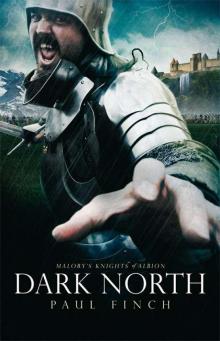 Dark North mkoa-3
Dark North mkoa-3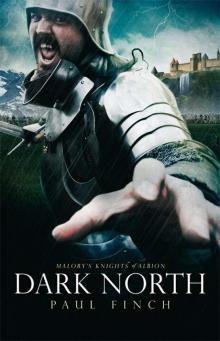 Dark North (Malory's Knights of Albion)
Dark North (Malory's Knights of Albion) a collection of horror short stories
a collection of horror short stories Sacrifice
Sacrifice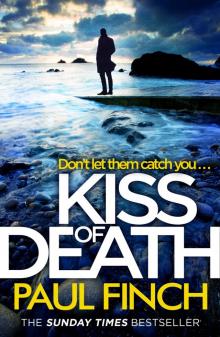 Kiss of Death
Kiss of Death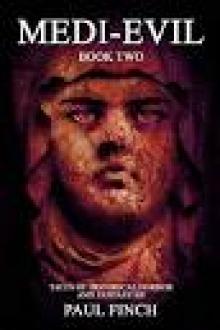 Medi-Evil 2
Medi-Evil 2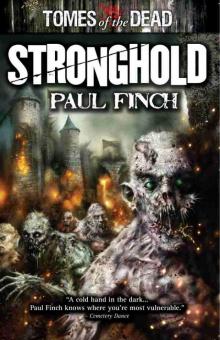 Stronghold
Stronghold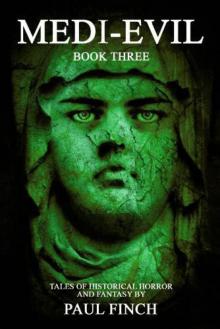 Medi-Evil 3
Medi-Evil 3 Dead Man Walking
Dead Man Walking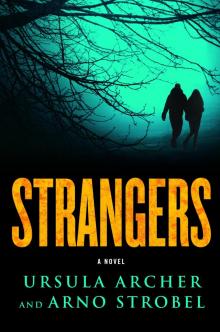 Strangers
Strangers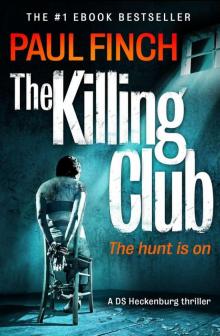 The Killing Club
The Killing Club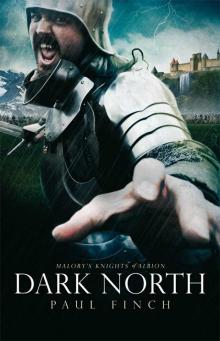 Dark North
Dark North A Wanted Man
A Wanted Man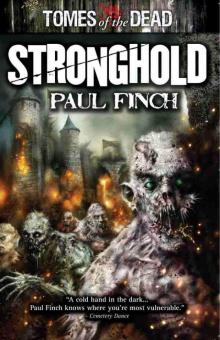 Stronghold (tomes of the dead)
Stronghold (tomes of the dead) Hunted
Hunted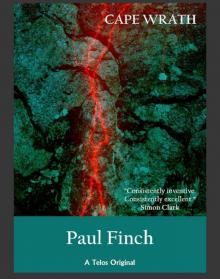 Cape Wrath
Cape Wrath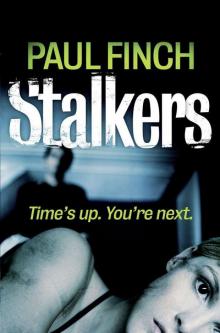 Stalkers
Stalkers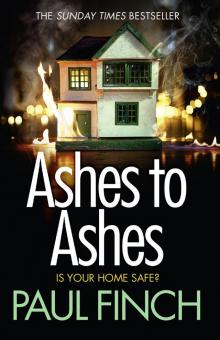 The Burning Man
The Burning Man Medi-Evil 1
Medi-Evil 1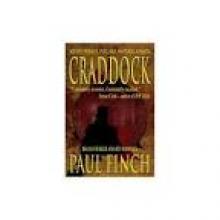 Craddock
Craddock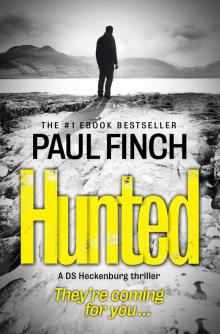 Hunted (Detective Mark Heckenburg Book 5)
Hunted (Detective Mark Heckenburg Book 5)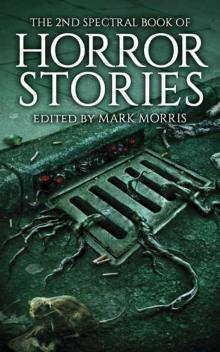 2nd Spectral Book of Horror Stories
2nd Spectral Book of Horror Stories The Chase
The Chase